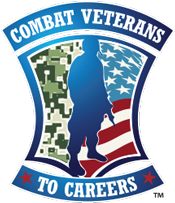
In a recent article written for the New York Times, authors Claire Cain Miller and Ruth Fremson explain why men are increasingly taking on the role of nursing, and how research has shown that both patients and hospitals benefit from a diverse nursing population. The following is an excerpt from the article, “‘Forget About the Stigma’: Male Nurses Explain Why Nursing Is a Job of the Future for Men.”
Jake Creviston, a nurse practitioner, has been repeatedly mistaken for a doctor.
Adam White says the veterans he cares for as a student nurse at the V.A. hospital feel comfortable around him because “I’m a big burly guy with a beard.”
Glenn Fletcher, after being laid off from a lumber mill during the financial crisis, found a new career in nursing. And with it, “a really good feeling putting your head on the pillow realizing you’ve helped other people.”
The experiences of male nurses offer lessons that could help address a problem of our time: how to prepare workers for the fastest-growing jobs, at a time when more than a quarter of adult men are not in the labor force.
Only 13 percent of nurses in the United States are men, but that share has grown steadily since 1960, when the number was 2 percent, according to a working paper published in October by the Washington Center for Equitable Growth.
“It’s not a flood, but it’s a change,” said Abigail Wozniak, an economist at the University of Notre Dame, who wrote the paper with Elizabeth Munnich, an economist at the University of Louisville. The biggest drivers, they found, were the changing economy and expanding gender roles.
We talked to a dozen male nurses, with various career paths and specialties, working in the Pacific Northwest, where recruitment efforts have focused on bringing men into nursing. Some were drawn to the care giving, others to the adrenaline of the work. It’s a reliable, well-paying job at a time when that’s hard to come by, they said, but also one they feel proud of.
…
The researchers also found that economic factors have played a role — a decline in some jobs because of automation, trade and the housing crisis, and a growth in jobs and wages in health care. Nursing is growing much faster than the average occupation, and wages have increased steadily since 1980. The median salary is $68,450, about the same as the median salary for college-educated workers over all.
“A lot of those manufacturing jobs and things of that nature just aren’t there anymore,” said David Baca, an emergency department nurse in Medford, Ore. “We get paid a really livable wage, and I think that is now starting to attract more male nurses.”
…
In interviews, men said they liked the variety of work: Nurses can be bedside caregivers, surgery assistants, educators, technicians or administrators.
Several said they felt an advantage in applying for nursing jobs because men are a minority in the field. Hospitals and patients benefit when nurses more closely reflect the patient population, research shows.
Sometimes patients prefer a nurse of a certain sex, particularly for procedures like inserting a catheter, nurses said, and some men feel more comfortable talking openly with another man.
“I work on this floor with people who just had urology surgery or amputations, and they have told me that when I come in the room and shut the door behind me, they feel more understood and can drop the tough guy attitude,” Mr. White said.
Read the full article here.
Health care is a job industry that will never go away, and are plenty of nursing opportunities available today. A few local organizations hiring nurses include:
Don’t forget, you can use your GI Bill to go to nursing school! Contact us today if you are interested.







